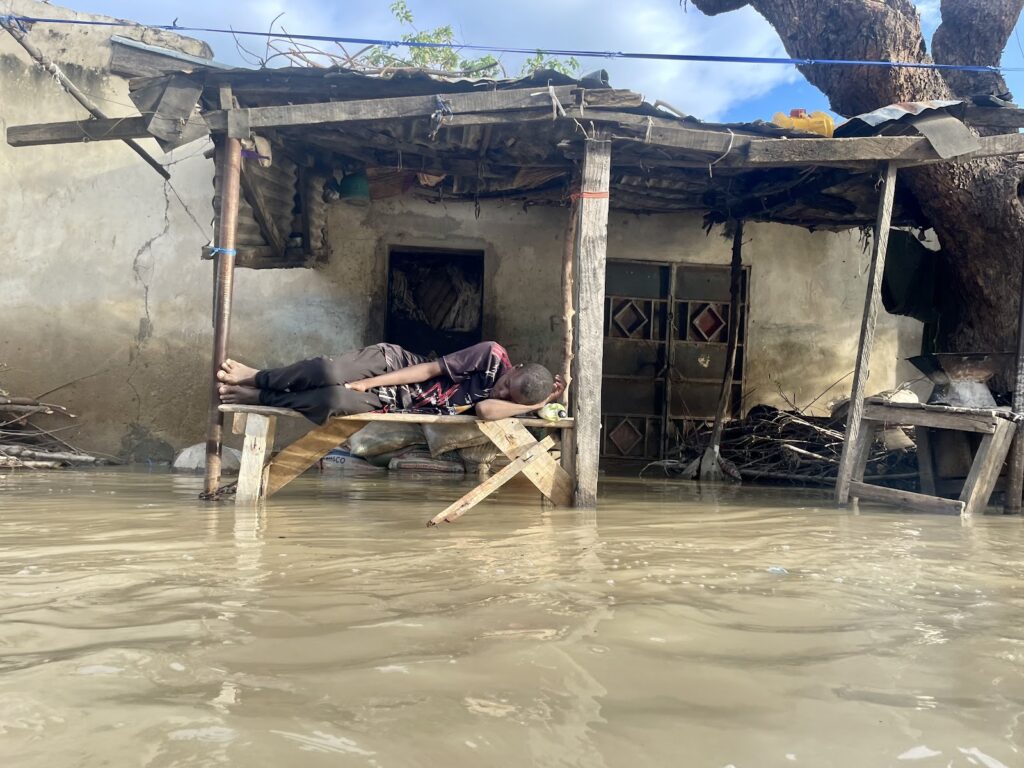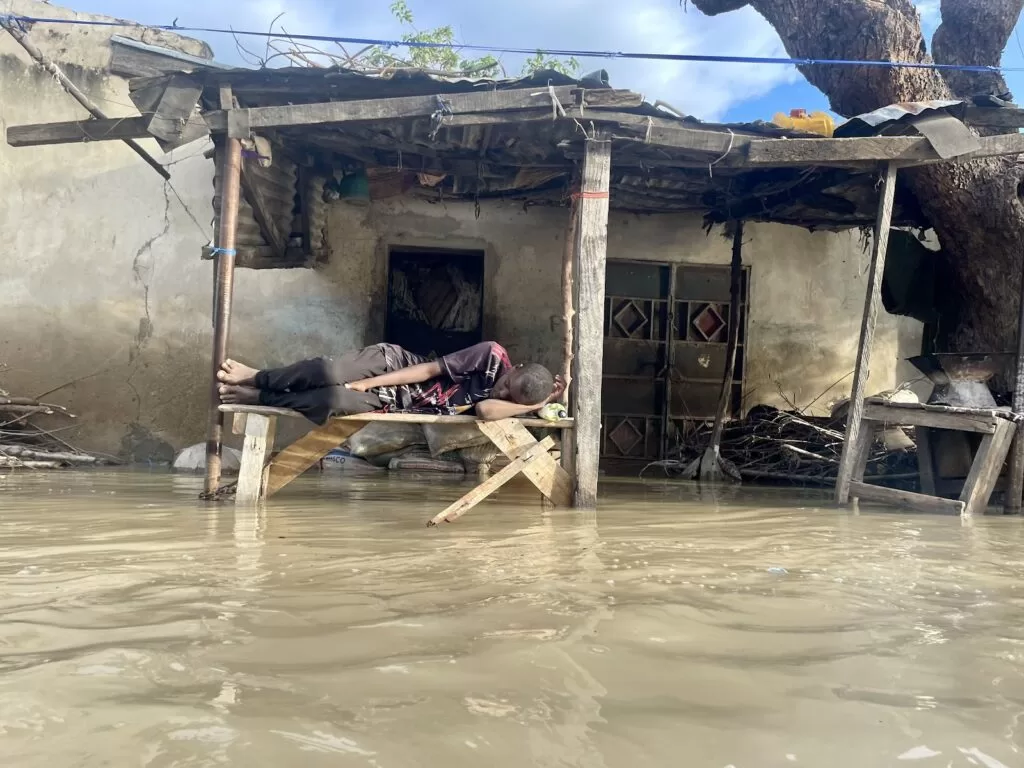The Sahel and Lake Chad region, already grappling with the devastating impacts of conflict, displacement, and climate change, is now facing a fresh wave of humanitarian challenges as severe floods ravage communities across multiple countries.
In northeast Nigeria alone, more than 50,000 people have been displaced in the last week as floodwaters have submerged homes, destroyed livelihoods, and disrupted essential services. The Norwegian Refugee Council (NRC) issued an urgent call on Monday, Sept. 16, for international support, warning that the situation is increasingly dire and requires immediate intervention.
“The situation in the Sahel and Lake Chad region is increasingly dire, as the compounding effects of conflict, displacement, and climate change take a severe toll on vulnerable populations,” said Hassane Hamadou, NRC’s Central and West Africa regional director. “Our immediate priority is to ensure affected people across the region receive essential support such as shelter, food, and hygiene supplies. Longer-term solutions, including improving existing infrastructures, must be coordinated with local governments to build resilience against future disasters.”
The effects of these floods will push the already fragile region into a deeper humanitarian crisis, especially in Borno state, which has long been an epicentre of one of the world’s worst humanitarian crises, driven by a decade-long insurgency led by Boko Haram and its offshoots. For over a decade, millions of people have lived in constant fear of attacks, with entire communities forced to flee their homes repeatedly.
Now, with floodwaters sweeping across farmlands and urban areas, the crisis has escalated.
Residents of Maiduguri, one of the worst-hit areas in Nigeria, described the chaos brought by the floods: “Our homes were damaged. The flood ruined our kitchens, toilets, and bedroom,” shared Hussaini. “We barely escaped the flooding. We could not take anything with us. We were lucky to have escaped with our lives,” Amina told HumAngle.

The destruction of agricultural lands severely threatens food security, particularly for communities that rely heavily on subsistence farming.
Nigeria is not the only country suffering from the catastrophic floods.
An analysis of data from the United Nations Office for the Coordination of Humanitarian Affairs (OCHA) reveals that floods have affected 354,000 hectares of agricultural land across West and Central Africa, rendering 380,000 hectares unfit for farming or livestock. This has caused a steep decline in food production and income, leaving many families struggling to survive.
In Mali, where conflict and food insecurity had already pushed communities to the brink of famine, NRC said the floods further devastated rural areas reliant on subsistence farming and pastoralism. Pastoralists lost entire herds as floodwaters swept through grazing lands, leaving many households facing severe hunger.
Likewise, the NRC noted that in Nigeria and Cameroon, floods have displaced thousands of people, many of whom were already living in temporary shelters after being forced from their homes by violent conflict. Communities along the Lake Chad Basin, one of the region’s most severely impacted by the combined effects of insecurity and climate change, face increasingly frequent drought and heatwaves with devastating yearly consequences. Submerged farmlands, crucial to local economies, have heightened the risk of famine and food insecurity.
In addition to the loss of livelihoods, the floods have disrupted access to education. Many schools have been destroyed or repurposed as shelters for displaced families, forcing children out of classrooms and further jeopardising their prospects. The floods have exacerbated a dire situation for regions already facing high dropout rates due to insecurity.

Local actors and humanitarian organisations are working tirelessly to provide immediate relief to those affected by the floods, but resources are increasingly stretched. According to OCHA, with only 25 per cent of the 2024 Humanitarian Response Plan for Sahel funded, there are growing concerns that the aid being provided is insufficient to meet the scale of the crisis.
Humanitarian organisations, including the NRC, have stressed the urgent need for international funding to support emergency response efforts and long-term recovery plans. Without sustained financial support, fragile communities will continue to face the dual challenges of displacement and climate-induced disasters, with little hope for recovery.
“These severe floods are a stark reminder of the Sahel and Lake Chad region’s vulnerability to climate change, which may only worsen soon. Fragile communities already living in crisis cannot face these challenges alone,” said Hamadou.
While immediate relief is critical, the NRC emphasises that longer-term solutions are essential to build resilience against future disasters. Local governments, international donors, and humanitarian agencies must collaborate to improve infrastructures such as flood defences, drainage systems, and shelters to mitigate the impact of climate-related disasters.
Support Our Journalism
There are millions of ordinary people affected by conflict in Africa whose stories are missing in the mainstream media. HumAngle is determined to tell those challenging and under-reported stories, hoping that the people impacted by these conflicts will find the safety and security they deserve.
To ensure that we continue to provide public service coverage, we have a small favour to ask you. We want you to be part of our journalistic endeavour by contributing a token to us.
Your donation will further promote a robust, free, and independent media.
